MercoPress. South Atlantic News Agency
Tag: Indec
-
Thursday, February 7th 2019 - 10:05 UTC
Manufacturing in Argentina was 5% down during 2018
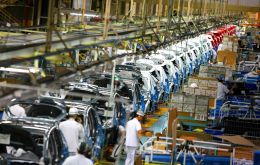
Manufacturing performance in Argentina during 2018 was one of the worst since the 2001/02 collapse and melting of the country's economy according to the latest release from the stats office, Indec. Manufacturing dropped 14.7% in December compared to the same month in 2017, ending 2018 with an overall decrease of 5%.
-
Thursday, February 7th 2019 - 09:57 UTC
Argentine construction industry activity in the doldrums
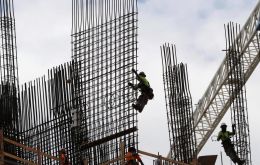
The construction industry in Argentina ended 2018 with a paltry 0.8% growth, and although taking off at the beginning of last year with a vigorous impulse but beginning May, when the financial situation forced the Peso to lose half of its purchasing power, activity started to freeze ending December with a 20.5% collapse.
-
Monday, January 14th 2019 - 09:31 UTC
Argentina's annual inflation during 2018 estimated at 48%, highest since 1991

Argentina's stats office Indec, is scheduled to announce December's inflation and for the whole of a very volatile 2018 next Tuesday, with estimates ranging at 48%, the highest in the country since 1991. November's Consumer Price Index was 3.2%.
-
Thursday, December 6th 2018 - 08:45 UTC
Argentine manufacturing and construction declines during October
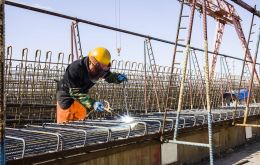
Manufacturing in Argentina fell 6.8% in October year on year, while construction declined 3.7%, and in the first ten months of this year 2.5% and 4.9% respectively according to the Indec statistics bureau report. Firms were hit hard by a contraction in economic activity and the devaluation of the Peso against the US dollar.
-
Monday, September 24th 2018 - 08:16 UTC
Almost two million Argentines out of a job in the second quarter of 2018
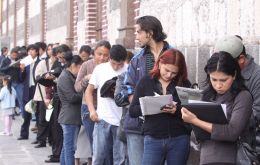
Almost two million Argentines are without a job, more precisely 1,999,387 according to the latest unemployment report from the county's stats office, Indec. In effect unemployment rose in the second quarter to 9.6%, from 8.7% a year ago, making it the highest figure in twelve years.
-
Friday, August 24th 2018 - 08:50 UTC
Argentina’s economy contracts in June for the third month running
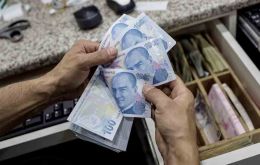
Argentina’s economy contracted 6.7% in June compared with the same month last year, and 1.3% compared with May, government statistics agency Indec said on Thursday. June was the third consecutive month of decline following 5.2% in May and 0.6% in April.
-
Thursday, August 23rd 2018 - 08:58 UTC
Argentine trade deficit in seven months climbs to US$ 5.9 billion
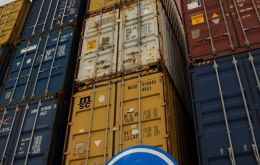
Argentina posted a trade deficit of US$789 million in July, government statistics agency Indec said on Wednesday, compared with a deficit of US$ 359 million in June and a deficit of US$ 748 million in July 2017.
-
Saturday, August 4th 2018 - 12:35 UTC
Argentina's industrial output was down 8.1% in the twelve months to June

Argentina’s industrial output plunged 8.1% in June compared with the same month last year, government statistics agency Indec said, the sharpest monthly drop since the country was in the grips of an economic meltdown in 2002.
-
Friday, March 23rd 2018 - 09:06 UTC
Argentina expanded 2.9% last year; 2018 challenging given the persistent drought effect on crops

Argentina's economy expanded 2.9% in 2017 from the prior year and 3.9% in the fourth quarter versus the same period in 2016, the Indec statistics agency said this week. The year-over-year figure was slightly above the 2.8% annual growth rate given last month by Argentina's monthly economic activity indicator, seen as a proxy for gross domestic product.
-
Thursday, February 15th 2018 - 09:45 UTC
Argentina central bank holds benchmark rate at 27.25%; inflation data on Thursday

Argentina’s central bank held its benchmark seven-day interbank lending rate at 27.25% on Wednesday, the monetary authority said in a statement, amid an increase in inflation expectations and “mixed signals” in prices so far this year.
